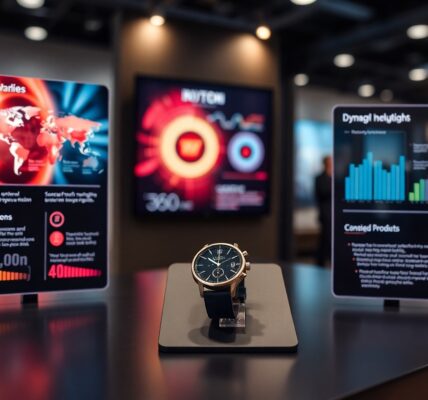Amperity, a leader in customer data software, recently announced the appointment of Tony Alika Owens as its new Chief Executive Officer. With over 20 years of experience in global sales and enterprise operations, Owens is expected to bring transformative leadership to the company, known for its AI-powered customer data platform.
Owens’ previous roles at major firms like Salesforce and Oracle position him as a strong fit for Amperity, especially as the business landscape increasingly emphasizes data-driven decision-making. His deep understanding of customer relationship management (CRM) and data analytics will be pivotal for Amperity as it seeks to expand its influence in an industry marked by rapid technological change.
Matt McIlwain, Managing Director at Madrona and a board member at Amperity, expressed excitement about Owens’ appointment, noting the company’s focus on integrating AI into their strategies. “Tony’s extensive experience in enterprise software, coupled with his passion for delivering customer value, is bound to elevate Amperity’s mission in this dynamic marketplace,” McIlwain stated. This strategic direction aligns with current trends that show a growing reliance on artificial intelligence and analytics to enhance business offerings.
In his role as President of Worldwide Field Operations at LivePerson, Owens managed critical market strategies that drove significant growth. His significant tenure at Salesforce involved overseeing field operations in the Americas and participation in the executive committee, demonstrating his strategic acumen and ability to guide organizations through varying challenges. His experience at Oracle as Group Vice President further solidifies his qualifications as a leader capable of steering Amperity toward its growth ambitions.
The importance of customer data cannot be overstated as businesses strive to understand consumer behaviors and preferences more deeply. In this context, Owens emphasized his commitment to harnessing the full potential of customer data to cultivate value for Amperity’s clients. “We have a unique opportunity to refine and democratize customer data. By leveraging AI, we can support technical teams in shaping effective business strategies, and drive unprecedented growth,” he explained.
Owens’ vision for Amperity dovetails with the broader industry trend of utilizing data analytics in e-commerce and digital marketing. According to a report from McKinsey, companies that integrate data into their decision-making processes are 23 times more likely to acquire customers and 19 times more likely to be profitable. This growth trajectory reinforces the urgency for businesses to adopt data-centric strategies, making Owens’ leadership particularly relevant.
Amperity aims not only to assist brands in navigating complex customer data but also to transform this data into actionable insights that lead to sound business decisions. By placing an emphasis on AI-driven strategies, Amperity is positioned to help retailers and marketers unlock critical insights that can guide their operations.
As part of his new role, Owens will focus on enacting the company’s vision and further developing its product capabilities. Techniques like machine learning and analytics will feature prominently in improving how brands interact with their customers, especially as personalization in marketing continues to prove effective. Automated decision-making, drawn from robust datasets, will empower brands to enhance customer experiences while increasing operational efficiency.
Looking at competitors like Segment and BlueConic, which also focus heavily on customer data platforms, Amperity under Owens’ leadership is likely to harness competitive advantages through innovative solutions. Segment, for instance, has successfully made a name for itself by providing companies with comprehensive customer profiles that can be used for targeted marketing initiatives. Similarly, BlueConic’s focus on real-time data access allows its users to make informed decisions rapidly.
In conclusion, Tony Owens’ appointment as CEO of Amperity signals a significant shift in the company’s strategy towards a more data-centric approach. His vast experience in the tech industry, emphasis on customer value, and vision for AI and data analytics sets the stage for Amperity to navigate the complexities of customer engagement effectively. With expectations of enhanced growth and innovation, stakeholders across the digital marketing and e-commerce landscapes will be watching closely as Owens leads Amperity into its next phase of growth.












